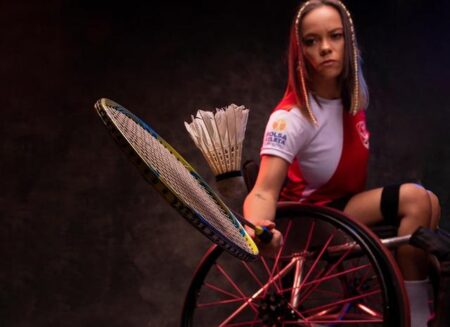In a significant legal development in collegiate athletics, the University of Wisconsin has filed a lawsuit against the University of Miami, accusing the Hurricanes of unlawfully poaching Xavier Lucas while he was still under contract with the Badgers. The lawsuit, which centers on allegations of tampering and breach of contract, underscores the escalating tensions and legal complexities surrounding athlete recruitment and transfers in college sports. As the case unfolds, it raises critical questions about contractual obligations and the boundaries of competitive recruitment among NCAA programs.
Wisconsin Initiates Legal Action Over Xavier Lucas Recruitment Dispute
The University of Wisconsin has officially taken legal steps against the University of Miami, alleging an improper recruitment of Xavier Lucas during a period when he was still contractually bound to Wisconsin. The lawsuit claims Miami engaged in unauthorized contact and inducements, violating NCAA regulations and the binding agreement with the athlete. This move marks a rare escalation of recruitment disputes into the courtroom, reflecting growing tensions between top-tier programs over coveted talent.
Key points raised in the lawsuit include:
- Alleged contract breach: Wisconsin asserts that Lucas was under a legally enforceable contract at the time Miami initiated recruitment efforts.
- Improper inducements: Claims that unauthorized benefits and promises were made to sway the athlete’s decision.
- NCAA violations: The suit seeks to highlight violations of recruitment protocols designed to ensure fair play and athlete protection.
| Aspect | Wisconsin’s Position | Miami’s Defense |
|---|---|---|
| Contract Status | Active and binding at time of recruitment | Disputes enforceability claims |
| Recruitment Approach | Unlawful contact and inducements | Claims adherence to NCAA rules |
| Legal Implications | Seeking damages and injunctions | Defending against all allegations |
Examining Contractual Obligations in Collegiate Athlete Transfers
The lawsuit brought forth by Wisconsin against Miami spotlights critical issues surrounding the enforcement of contractual obligations in collegiate athletics. Xavier Lucas, who was still bound by an active contract with Wisconsin, became the center of controversy after Miami allegedly engaged in recruitment tactics that disregarded the legal agreement in place. This case raises important questions about the respect for binding commitments in NCAA transfers and the mechanisms schools have available to protect their interests.
Key points in dispute include:
- Validity of verbal and written contracts: Whether transfer negotiations breached terms explicitly stated in Xavier’s agreement.
- Recruitment ethics: If Miami’s approach undermined established transfer protocols.
- Financial and reputational impact: The consequences schools face when talent acquisition crosses contractual lines.
| Aspect | Wisconsin’s Position | Miami’s Defense |
|---|---|---|
| Contract Status | Lucas under active scholarship contract | Dispute over enforceability post-season |
| Recruitment Timing | Initiated while contract still valid | Negotiations claimed after mutual consent |
| Injury to Program | Loss of key player mid-cycle | Opportunity to advance athlete’s career |
Potential Implications for NCAA Transfer Policies and Enforcement
The lawsuit filed by Wisconsin against Miami over the recruitment of Xavier Lucas highlights significant challenges within the current NCAA transfer framework. This case underscores potential gaps in enforcement mechanisms and raises questions about the effectiveness of existing rules designed to prevent unauthorized tampering. If similar disputes proliferate, the NCAA may face increased pressure to refine policies around player movement, emphasizing clearer definitions of “under contract” status and instituting harsher penalties for programs found violating transfer protocols.
Additionally, this situation could catalyze a more transparent and centralized transfer portal system, enabling schools to track commitments more reliably and reducing the likelihood of “poaching.” The NCAA might also consider implementing a standardized arbitration process to swiftly resolve conflicts, minimizing disruptions for athletes and institutions alike. Key areas of reform likely to come under scrutiny include:
- Stricter enforcement of recruitment tampering rules
- Enhanced transparency in transfer negotiations
- Clearer contractual obligations between players and schools
- Development of an independent oversight committee
| Policy Area | Current Status | Potential Change |
|---|---|---|
| Transfer Tampering Enforcement | Inconsistent | Uniform application with penalties |
| Contractual Clarity | Ambiguous | Standardized binding agreements |
| Transfer Portal Transparency | Opaque | Real-time updates and oversight |
| Dispute Resolution | Lengthy and decentralized | Centralized, expedited arbitration |
Recommendations for Schools to Navigate and Prevent Recruitment Conflicts
To minimize recruitment conflicts like the one seen in the Xavier Lucas case, schools must implement clear contractual frameworks that explicitly outline the terms of commitment and penalties for breach. Transparency during the recruitment process is essential; institutions should ensure all parties understand the binding nature of agreements made with student-athletes. Additionally, establishing a centralized compliance office can help monitor ongoing recruitment activities and mediate disputes before escalating to litigation. Schools may also invest in educating coaches and recruiters about ethical practices to reinforce respect for existing contracts.
Proactive communication between athletic programs and potential recruits is another crucial strategy. Maintaining open, documented channels can prevent misunderstandings and discourage unauthorized approaches by competing schools. The table below summarizes key recommendations to reduce recruitment conflicts and foster a fairer competitive environment:
| Strategy | Description | Impact |
|---|---|---|
| Contract Clarity | Detailed agreements with binding terms | Reduces legal disputes |
| Compliance Office | Centralized monitoring of recruitment practices | Early conflict resolution |
| Ethics Training | Regular education for staff and coaches | Fosters fair recruiting cultureKey Strategies to Reduce Recruitment Conflicts
| Strategy | Description | Impact | Implementing these strategies can help schools create a transparent and ethically responsible recruiting environment that minimizes conflicts and promotes fair competition. In SummaryAs the legal battle unfolds, the dispute between Wisconsin and Miami highlights the growing tensions in college athletics over player recruitment and contractual obligations. Both institutions await further developments as the case proceeds, underscoring the complexities involved in maintaining fairness and integrity in collegiate sports. Fans and stakeholders alike will be watching closely to see how this high-profile lawsuit impacts future recruitment practices and contractual enforcement.
Add A Comment
|





